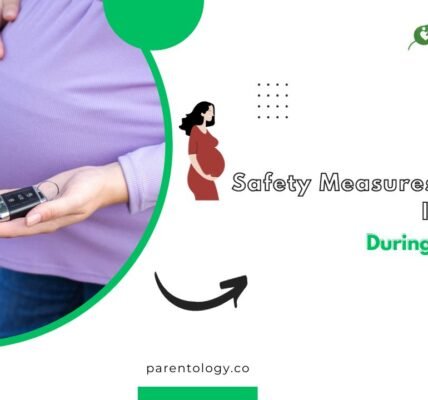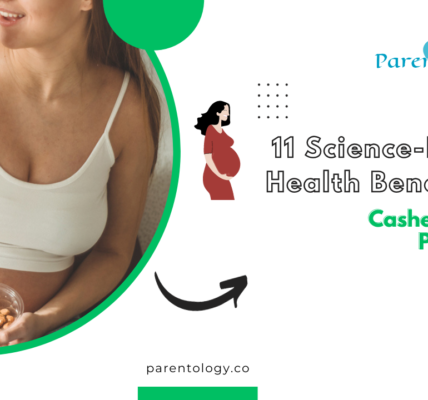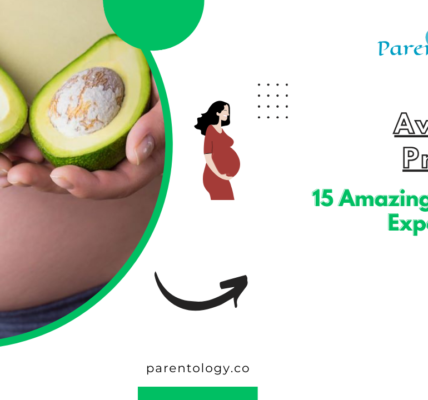During pregnancy, maintaining a well-balanced diet is essential, and Vitamin A plays a significant role in supporting both maternal and fetal health. Understanding the importance of Vitamin A during pregnancy, its safe levels, and its best sources becomes paramount for expecting mothers.
Importance of Vitamin A During Pregnancy
Vitamin A is an indispensable nutrient that contributes to the development of the baby’s organs, vision, and immune system. It aids in the formation of the heart, lungs, kidneys, eyes, and bones. However, excessive intake can pose risks, making it crucial to strike the right balance.
Safe Levels of Vitamin A During Pregnancy
- The recommended dietary allowance (RDA) for pregnant individuals is around 770 micrograms (mcg) per day.
- Excessive consumption can lead to birth defects; thus, it’s vital to consult healthcare providers to determine safe intake levels.
Vital Sources of Vitamin A
Natural Food Sources
| Food Sources | Vitamin A Content (per serving) |
| Sweet Potatoes | High in beta-carotene, a precursor to Vitamin A |
| Spinach | Rich in Vitamin A, iron, and folate |
| Carrots | Abundant in beta-carotene |
| Liver | Excellent source of preformed Vitamin A |
| Mangoes | Good source of beta-carotene |
Incorporating Vitamin A into Pregnancy Diet
- Focus on consuming a variety of Vitamin A-rich foods.
- Ensure adequate intake of fruits, vegetables, dairy, and lean proteins.
- Avoid excessive intake of supplements without professional guidance.
Safety Measures and Precautions
- Always consult healthcare professionals before taking any supplements or making significant dietary changes during pregnancy.
- Personalized guidance can ensure optimal Vitamin A intake without risking potential harm to the mother or baby.
- Differentiate between preformed Vitamin A (retinoids) and beta-carotene (carotenoids) sources.
- Carotenoids found in fruits and vegetables are safer alternatives, as the body converts them to Vitamin A as needed.
Understanding Vitamin A Types
Preformed Vitamin A (Retinoids)
- Found in animal-based sources like liver, fish oil, and dairy products.
- Excessive intake can lead to toxicity, making moderation crucial.
Provitamin A Carotenoids
- Abundant in colorful fruits and vegetables like carrots, sweet potatoes, and leafy greens.
- Safer options as the body converts them to Vitamin A according to its requirements.
Impact of Vitamin A Deficiency and Excess
- Insufficient intake can lead to night blindness, weakened immunity, and hindered fetal development.
- Adequate consumption is vital for preventing these deficiencies.
- Excessive intake of preformed Vitamin A, especially through supplements, can lead to congenital disabilities.
- Balance intake to avoid any detrimental effects on the developing fetus.
Creating a Balanced Diet Plan
- Breakfast: Include fortified cereals or oatmeal topped with sliced mangoes or a glass of fortified milk.
- Lunch: Spinach salad with carrots, sweet potatoes, and grilled chicken.
- Snacks: Enjoy carrot sticks with hummus or a fruit salad.
- Dinner: Grilled fish with steamed broccoli and a side of mashed sweet potatoes.
Consultation and Personalized Recommendations
- Your obstetrician or a registered dietitian can provide personalized dietary plans.
- Discuss your diet, any concerns, and get guidance tailored to your specific needs.
Supplementation and Vitamin A Monitoring
- If deemed necessary, prenatal vitamins often contain safe levels of Vitamin A suitable for pregnant women.
- However, always discuss and get recommendations from healthcare providers before starting any supplements.
- Regular check-ups and blood tests during prenatal visits can help monitor Vitamin A levels.
- Healthcare professionals can assess and provide guidance based on these results to ensure optimal intake.
Factors Influencing Vitamin A Absorption
- Vitamin A is fat-soluble, requiring adequate dietary fat for absorption.
- Consuming healthy fats like avocados or nuts alongside Vitamin A-rich foods aids absorption.
- Some cooking techniques may affect Vitamin A content in foods.
- Steaming or lightly cooking vegetables can preserve their Vitamin A content better than boiling.
Educational Resources and Support Networks
- Utilize credible sources like reputable health websites, books, or healthcare professionals for accurate information.
- Be cautious of misinformation and seek guidance from trusted sources.
- Joining pregnancy support groups or online forums can provide invaluable insights and emotional support.
- Engaging with others experiencing similar journeys can offer comfort and shared experiences.
The Myth Surrounding Vitamin A Avoidance
- Some pregnant individuals may entirely avoid Vitamin A sources due to misconceptions.
- Understanding safe levels and types of Vitamin A is crucial to dispel unwarranted fears.
Continuing Healthy Habits Post-Pregnancy
- Continuing a balanced diet post-pregnancy is vital for both the mother’s and baby’s health.
- Adequate Vitamin A intake supports lactating mothers in providing essential nutrients through breast milk.
Final Thoughts
Embracing the importance of Vitamin A during pregnancy encompasses careful attention, informed choices, and seeking guidance from healthcare professionals. It’s a balancing act of reaping the benefits of this vital nutrient while avoiding potential risks.
Remember, an informed and balanced approach to nutrition plays a pivotal role in nurturing a healthy pregnancy and ensuring a smooth transition into motherhood.
For additional expert insights and a wealth of resources dedicated to maternal and child health, explore Parentology.co to access comprehensive information and guidance.
FAQs on Vitamin A During Pregnancy
Q 1. Can I Take Vitamin A Supplements While Pregnant?
Ans 1: It’s advisable to avoid supplements without consulting a healthcare professional to prevent exceeding safe levels.
Q.2 Are There Risks Associated with Excessive Vitamin A Intake During Pregnancy?
Ans 2: Yes, excessive intake can lead to birth defects and complications.
Q 3: Should I Be Concerned About Vitamin A Deficiency During Pregnancy?
Ans 3: A balanced diet usually meets the required Vitamin A levels, but discuss any concerns with your healthcare provider.
Q 4: Can Consuming Too Much Preformed Vitamin A Cause Harm to the Baby?
Ans 4: Excessive intake of preformed Vitamin A, often found in animal sources like liver, can pose risks.
Q 5: What Are the Symptoms of Vitamin A Toxicity During Pregnancy?
Ans 5: Symptoms include nausea, blurred vision, headaches, and potential birth defects.
Q 6: Are There Any Foods I Should Limit Due to High Vitamin A Content?
Ans 6: Limit intake of liver and certain fish species high in Vitamin A to avoid excess.
Q 7: How Does Vitamin A Contribute to Fetal Development?
Ans 7: Vitamin A plays a pivotal role in forming the baby’s organs, eyesight, and immune system.
Q 8: Can Vitamin A Supplements Impact Breastfeeding?
Ans 8: Excessive intake may transfer through breast milk, affecting the baby. Consult a healthcare provider for guidance.
Q 9: Are There Any Natural Alternatives to the Vitamin A Supplements?
Ans 9: Focusing on a diverse diet rich in fruits, vegetables, and dairy can often fulfill Vitamin A requirements.
Q 10: What Measures Can I Take to Ensure I’m Getting Enough Vitamin A During Pregnancy?
Ans 10: Regularly consume recommended foods rich in Vitamin A and consult healthcare providers for guidance.





